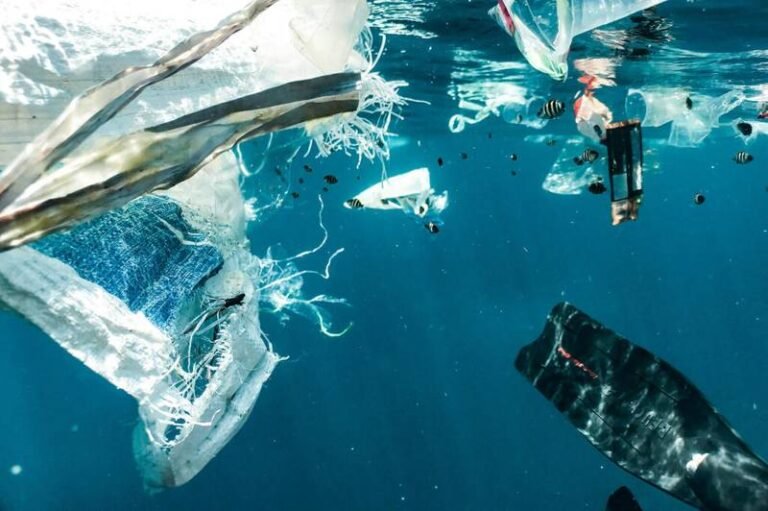Cross-Country Collaboration in Tackling Marine Plastic Pollution Yields Significant Economic and Environmental Returns
A recent study has revealed that collaborative efforts between countries to address marine plastic pollution can result in substantial economic and environmental benefits. In fact, the study estimates potential returns of up to $36 billion with a 64% reduction in emitted plastic for nations bordering the North Atlantic.
Focusing on Floating Macroplastic
The research specifically concentrates on floating macroplastic, which refers to plastic debris larger than 0.5 cm that enters the marine environment through rivers. It is estimated that between 4.8 to 12.7 million metric tons of plastic enter the global ocean annually, posing a significant threat to marine ecosystems and biodiversity worldwide.
Simulation and Analysis
The study utilized data on plastic emissions via rivers and models of ocean and atmosphere circulation to simulate the movement and distribution of plastic in and around the North Atlantic Ocean. By estimating each country’s contribution to the stock of plastic in the territorial waters of other nations, the researchers were able to assess the benefits of cooperation among 16 North Atlantic countries.
Unequal Distribution of Benefits
While collaboration was shown to offer significant advantages, the benefits were found to be unevenly distributed. Some countries could potentially experience economic losses without additional compensation mechanisms due to variations in plastic litter emissions, transport between nations, and financial capabilities to reduce plastic levels in the environment.
Political Constraints and Findings
Examining different political constraints, the study concluded that preventing any country from increasing its baseline emissions would be the least damaging option in terms of pollution reduction and economic benefits. The research also highlighted the UK’s role as a significant plastic emitter compared to other European countries, with plastic from the UK being transported to neighboring nations’ waters, including the Arctic.
Coordinated Efforts for Effective Pollution Control
Co-author Prof. Nicola Beaumont emphasized the importance of coordinated actions among countries sharing an ocean border, noting that collective efforts could be more effective in pollution control than individual actions. The study represents a pioneering effort in combining ocean and economic models to demonstrate the advantages of coordinated plastic pollution management across multiple nations.
The collaborative research involved oceanographers and social scientists from Plymouth Marine Laboratory, along with economists from various institutions, including the University of Aberdeen, University of Glasgow, and Clark University.

